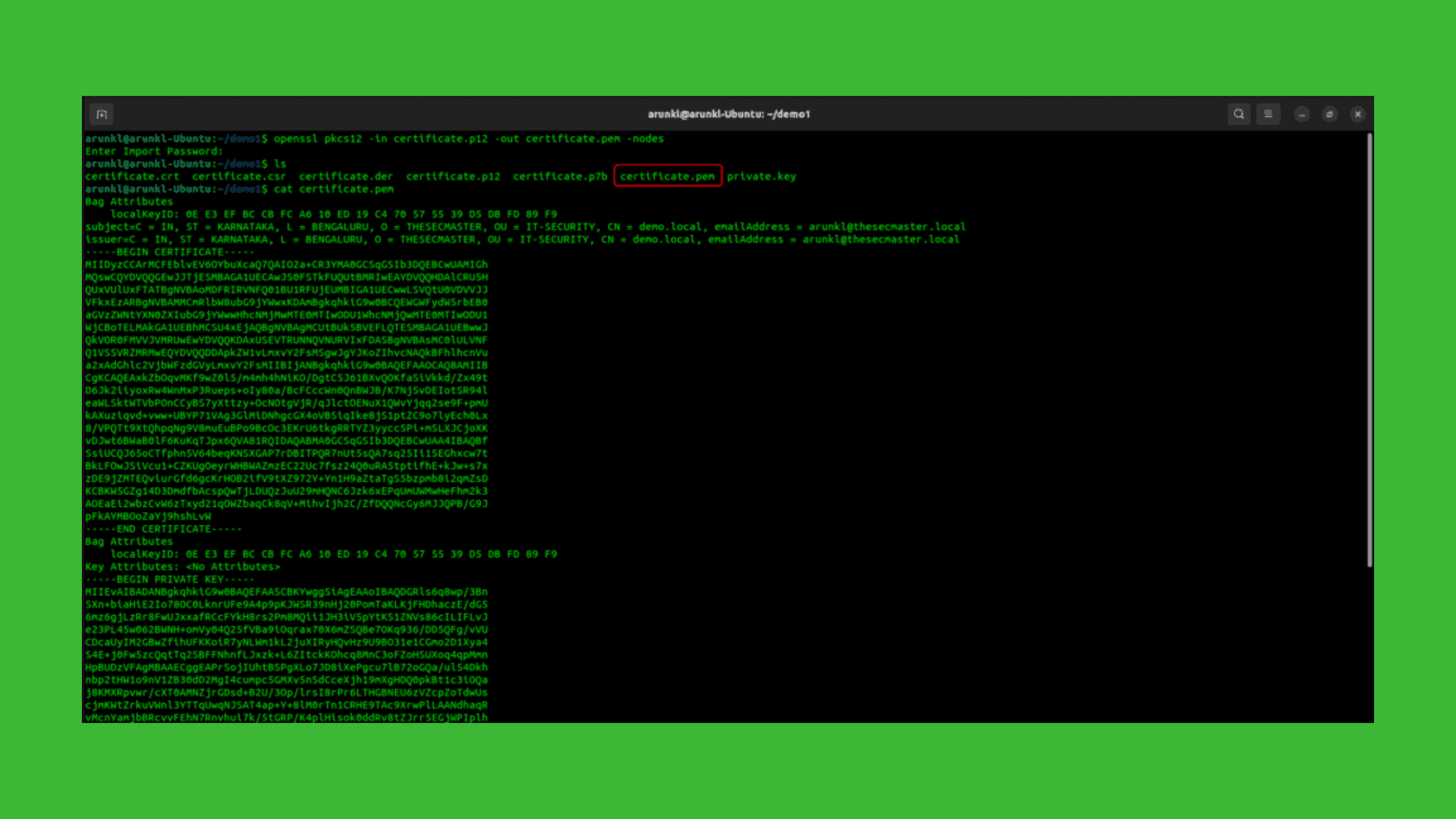Table of Contents
How to Convert PFX Certificate to PEM File using OpenSSL?
Converting a PFX (PKCS #12) file to PEM (Privacy Enhanced Mail) format is quite simple on Linux and Unix like systems. In this blog post, we will see how to convert a certificate file in PFX format to PEM file using OpenSSL from the command line.
What is a PFX file?
PFX (also PKCS#12) is a file format that contains certificate(s) and private key(s) encrypted with a password. It usually has .pfx or .p12 file extensions. PFX files are typically used to securely transfer SSL certificates and their private keys from one server to another.
What is a PEM file?
PEM (Privacy Enhanced Mail) is another file format that may contain just the certificate or the certificate with its private key. PEM files usually have extensions such as .pem, .key, .crt, .cer, etc. PEM encoded files are widely used for storing SSL certificates and keys on web servers.
Converting PFX to PEM using OpenSSL
You can use the OpenSSL command line tool to convert a PFX file to PEM format. An open-source toolkit that implements Secure Sockets Layer (SSL) and Transport Layer Security (TLS) protocols as well as general-purpose cryptography libraries.
To convert PFX to a PEM file containing a certificate as well as a private key:
openssl pkcs12 -in certname.pfx -out certname.pem -nodesTo convert PFX and get separate PEM files for certificate and key:
# Extract private key
openssl pkcs12 -in certname.pfx -nocerts -out key.pem
# Extract certificate
openssl pkcs12 -in certname.pfx -clcerts -nokeys -out cert.pemYou can also remove passphrase from the private key:
openssl rsa -in key.pem -out server.keyAnd finally, concatenate the key and certificate:
cat key.pem cert.pem > certname-full.pemThis will give you a combined PEM file with a certificate and unlocked private key that can be used on web servers like Nginx/Apache.
Hope this post helped you in understanding and converting PFX certificates to PEM format on Linux/Unix systems using the OpenSSL command line tool. Let me know if you have any questions!
Thanks for reading this post. Please share this post and help secure the digital world. Visit our website, thesecmaster.com, and our social media page on Facebook, LinkedIn, Twitter, Telegram, Tumblr, Medium, and Instagram and subscribe to receive updates like this.
You may also like these articles:
Arun KL
Arun KL is a cybersecurity professional with 15+ years of experience in IT infrastructure, cloud security, vulnerability management, Penetration Testing, security operations, and incident response. He is adept at designing and implementing robust security solutions to safeguard systems and data. Arun holds multiple industry certifications including CCNA, CCNA Security, RHCE, CEH, and AWS Security.
